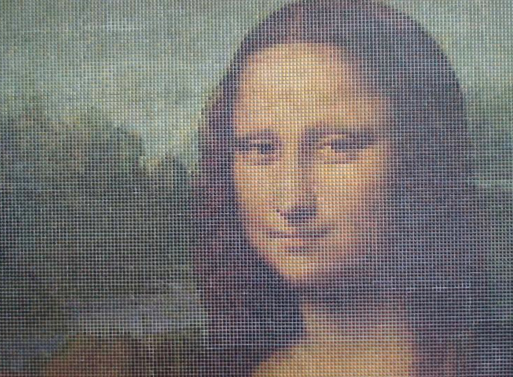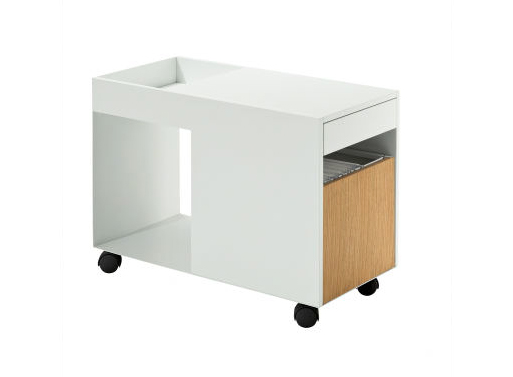Kathy Dalwood is a British artist and designer whose work focuses on small and large sculptures, public installations, and interior design services. I had a chance to get to know Kathy in London after purchasing one of her concrete figurines and we had many lovely conversations about art and design. Kathy was, of course, one of the first people on our list for our burgeoning Creative Types series. She was kind enough to let us ask her a few questions and take a few shots of her home.
kh:How would you describe your design style?
KD:My design style is a mixture of vintage and contemporary… I like a clean architectural feel, an uncluttered, basic interior with a mix of old things and modern things. I like old things, not just because they’re old, of course, because they’ve got to be interesting or beautiful, but everyday old things, and I like the fact that things can be reused. When my partner and I redid our house, instead of chucking everything out, we tried to keep as much as the fabric of the house as we could. We respected the work that the craftsmen had done when they actually built the house instead of just taking it all out. We used recycled materials a lot; for example, the kitchen counter tops are old science lab tops. It’s about being able to think about sustainability and recycling, not just liking it because it’s old.
kh:Where did you come across some of the older items for reuse, like the science lab tops?
KD:Junk and reclamation yards, and thrift shops mostly, especially in France because it’s cheaper than in London. The sink in my studio is from flea market in France. French junk is different and also a lot cheaper.
kh:Where do you draw your inspiration from, for both your interiors and your work?
KD:It’s a mixture of thinking back to the interiors I grew up in the 60s. My dad was an artist and he made furniture and sculpture, and he was really in charge of interior decor, so the places we lived in were cool and trendy, that sort of period influences me a lot. The elements of color, abstract paintings and things were all from that period. Also a lot of old books I’ve got on decor from different periods… really, that kind of thing.
kh:And then for your  sculpture and frieze work? How are you inspired for those?
KD:That’s a lot harder to describe; it’s more complex. It’s a lot more to do with sculpture, so I couldn’t answer that in just a phrase. It’s very different, or maybe not very different, but the influences I think about in sculpture are different. For example, I don’t use color at all, while in my interior design I have a lot of color. I love color, bold color, I’m very happy to use color. I’ve consistently had favorite colors through decades in interior design work but I never use color in my sculpture or frieze work. Those are perceived as very 3 dimensional and sculptural.

Public sculpture commission by Kathy Dalwood at St David’s 2, Cardiff

Public sculpture commission (close up) by Kathy Dalwood at St David’s 2, Cardiff
kh:The pieces of furniture you’ve made are quite sculptural as well…
KD:Yeah, they are. But that’s also about surfaces, textures, walls, and because you’re dealing with colors and patterns it’s a little different. But that’s completely separate from my sculptures; it’s the form I’m interested in. Color wouldn’t add anything at all, in fact, it might take away from the piece. Some people have asked for sculptures in color, and I say no, I’d never do that. But I really, really, love color, and in fact when I do interior design for other people’s homes, the main thing I bringing to their house is color. I get feedback from clients about how they love the color, and the way I juxtaposed color. They would have been terrified to do it themselves, but they love the impact it has… so color is massively important to me.
And more on interior design, I suppose I look at old interiors for inspiration. For example, I have some pictures framed here in my studio… they’re out of oldbooks, and I look at those books and then I’ll get a feel for something, for a period of time, and I think I’ll do something like that for an interior.

The thing I don’t do is look at interior design magazines. I never look at interior design magazines… Well, I do look at them, but I don’t look at them for inspiration. I would go to the source. I’d rather be someone inventing a style than follow a style someone else invented. I’d rather do something unique and different, in which case you have to go to original sources and get it out of my own head.
Going around to historic places helps too, visiting anywhere from a French chateau to Kettle’s Yard in Cambridge. It’s an art gallery, and next to it is an old house, lived in by this artist Duncan, and it’s how they did it up, this whole house, and it was left how it was, a total period piece, state of the modern at the time, 40’s 50’s…Â or another place I go to is Sir John Soane’s Museum. I love the way Sir John Soane did bookshelves and such. Real places are better for inspiration, it’s not just another designer’s interpretation or someone else’s choice about what’s cool now.

It’s hard to tell from this photograph, but this small console table that Kathy designed is covered in light purple flocking. It has a soft texture which adds a  nice detail to the entryway area.

Upstairs hallway leading to Kathy’s studio.
kh:What room do you spend the most time in and why?
KD:My studio. I love the light, and the sun and the shape. Some houses on this street have bay windows, but obviously ours hasn’t, but I much prefer it. I like the way I have a long wall with windows. I like the fact it has stuff in it to look at, thought at times it feels a bit oppressive because I think where am I going to put the next thing I make, because when you make sculpture, one minute you haven’t anything and the next you have a plaster cast and it’s a 3d object and you have to put it somewhere. I like the view, to see what’s going on out in the world.

Kathy at work in her studio.

kh:Are there any areas in your home that need attention?
KD:The attic.
kh:And do you have plans to tackle that?
KD:Our plans are one day to be brave and go up there go through it all and hire a skip and chuck it all out. God knows, there’s masses of stuff there, our stuff, furniture… I just wish I didn’t have an attic. It just hangs over us. And we’ve only got a tiny hatch to get up there. I don’t even go up there; I’m scared to go up there. Plus, if I haven’t seen it for ten years, do I really need it?
But there’s also old stuff that I can’t throw away, old pictures and such.
kh:What item do you consider to be the most useful in your home?
KD:There’s a cutting board we always use and even take with us on holiday… also, the fireplace tools. We love them because the design is so unassuming and workaday – simple and minimal – just pure function.


kh:What item do you consider to be the most beautiful in your home?
KD:I have a favorite painting of a ship in the downstairs hallway. It’s from the 1950,s and was a part of my dad’s collection of art he liked by artists he knew.


kh:What item will you always keep, no matter where you move?
KD:The curio cabinet that belonged to my mother. Since I was a kid, she always kept and put things in it.

kh:Would you consider yourself a minimalist or maximalist?
KD:I’m veering more towards maximalist, probably. I’d like to be in-between because I don’t like to have too much.. but no one would come to my house and say I’m a minimalist.
kh:Are there any daily rituals you find calming?
KD:Well, at the end of the day, I like to finish in time to do some sewing. I make most of my own clothes, curtains, cushions, etc. and I also swim or cycle everyday. It sets me up for the day; I think about what I have to do, how to plan it out. When swimming I can really think things through, particularly technical issues… how am I going to make something… I’ve got to imagine it 3 dimensionally, the techniques and processes to use. If you just sit and look at the thing, it doesn’t help. I’ve always done that; while walking or swimming I’ll think through solutions for my work.
kh:Do you have any helpful work habits you’d like to share?
KD:I don’t really write stuff down in terms of to-do lists, or notes for creative work; it’s generally just in my head. I do try to structure my day with computer work in morning and practical work in afternoon. I do work from quite rigid hours: 10am to 7pm. I don’t work weekends. I try not to even go into studio on weekend, so that it feels like going to work when I go into the studio. I have a completely different mindset on weekends. Mind you, I have the luxury of doing that. In the past I have had to work on weekends because I had a day job. I’ve actually really enjoyed working in a charity shop to balance out studio work; I love it.
kh:What prompted you to start volunteering there?
KD:I was just going mad, so many hours on your own, having to think about the same thing all of the time. So I thought I’ve got to do something. Maybe I’ll just go volunteer at a charity shop, so I chose one near me, and filled out a volunteer form. I said I was an artist/designer, and would like to do display and presentation. I go twice a week to do windows, and it’s just great. It’s so much better than just donating money to the shop; and it’s amazing people just buy the stuff I put in the window, straight away. What I really love about it is, you go in, and you have no idea what stuff they’ll have. I look through the rails, I look in the back, pick some things that look good and I base the displays on a color theme, because you have got to be able to get all these disparate objects to work together…
The other thing I like about it is it’s doing a still life. When I used to teach art, I liked arranging things for a still life for students to paint or draw. I’ve always loved still life painting, all the way back to early Spanish and Dutch. Plus, it’s a finite thing; all I have to do is go there and just use my creative flair, no responsibilities for anything else, there’s no prep, carry-over… it’s such a satisfaction to do them. It’s like making a piece of work, but not as involved. The other thing is you get a lot of great stuff. Now my whole wardrobe is cashmere and leather and stuff. Cashmere jumpers for 5 quid… I would rather pay someone to do some work in the studio rather than give up my work in the charity shop. It’s just such a great way to help. (see Kathy’s blog for pics.)
kh:Can you think of anything that would improve the quality of your life?
KD:A much bigger garden with a lawn and a tree… it’s what I fantasize about.
kh:No plans on moving then, for more outside space?
KD:No, because it would be hard for our careers to not live in London… and also, as much as I love the country, if I had a lot of money, I’d have a house in the country as well as the city. I wouldn’t swap the country for the city; there’s so much to do and lots of people in the city. I also fantasize about a little brasserie around the corner, like a French brasserie and cafe. I have dreams about it… I dream about walking around my neighborhood and I suddenly turn a corner and find a cafe that I didn’t know was there. That’s my main thing, probably more so than the garden.
kh:If you couldn’t do your sculpture work, what would your occupation be?
KD:More so in the design side that I’ve found by doing the work in the charity shop. Styling in some way or the other… because I think that’s one thing that I like and the thing I think I’m good at is arranging things, especially interior design. Some people in interior design are more interested in choosing the curtains and finding the objet, whereas for me, arranging the space is in how everything feels and works together spatially. I hate when people have things too high, artwork, etc… because then when you sit down you can’t see it. They create awkward spaces.
You’ve got to work out what you’re naturally good at and follow that.. that’s what you’ve got to do. As a career I wasted a lot of time; I spent a lot time teaching, which I am good at, but it didn’t satisfy me enough in the end. From the age of 8, I would always be arranging things. My mother would drop my sister and I off for ballet, and I hated the ballet, I would go round the corner to the library to look at the architecture books, and then I would get back in time to be picked up… and my parents wonder why I didn’t get any better at ballet. From that age, I was always arranging our sitting room, my bedroom, but I never considered interior design as a career then. It took a lot of time to realize that in my professional life. I didn’t realize I could make it a career until people really liked my work. I didn’t evern really think about what I was doing, it was just what I could do. It’s nice for something not to feel hard, then it’s not a bore and it doesn’t hang over you…



Model chalets that Kathy collects from flea markets and junk shops in London and France. See her blog for more info: Architecture: model chalets

It’s hard to see, but the art piece is by Andy Parker, one of Kathy’s previous students. He has a series of artworks that are transferred directly from writing made in the dirt on vans and trucks.





kh:Do you have a favorite vacation spot?
KD:France, of course. “Le Clapier” in Aveyron, France
kh:What would you say your hobbies are outside of work?
KD:Gardening and sewing and reading. My favorite writer is Edith Wharton and I’m very interested in American literature, when I go to America I just buy lots of novels, particularly interested in stuff set in the southern states and pioneering, contemporary literature, 20th and 21st century, that period of American history I find very fascinating.
kh:Have you thought about getting an E-reader?
KD:Absolutely no way, ever. I love books. I love the physicality of books. I only read one book at a time. When we go to France I just take a cardboard box full of books and when I travel I don’t bring books because I buy them there to bring back.
kh:Do you have any favorite designers/architects or periods of architecture?
KD:I suppose it’s a period of architecture in Europe around 12 or 13 century; they built a lot of castles and towers and their style is incredibly minimal and sculptural, great big squares, and columns, very elemental structures. (see Kathy’s post on her blog: Architecture: Castles, towers & random structures)
Just to pick an artist out, Rodin has been very influential in my work and also Morandi, the Italian painter, for his incredibly simple still lifes of everyday objects… unassuming everyday quotidian jars and boxes and vases and those kinds of things.
kh:Any words of wisdom to a younger generation?
KD:Well, really, what we were saying earlier, just get in tune what you like doing and what you’re good at doing and make that your life. Stay focused and really go for it; if you want it to happen, it will happen. Everything I’ve fantasized about doing I’ve done, teaching, sculpting, etc. everything I’ve achieved is because I’ve stuck out that ambition and kept my focus.
To see more of Kathy’s work, visit her website: Kathy Dalwood
Thanks Kathy for taking the time to answer our questions and for letting us take a few shots of your home.


































